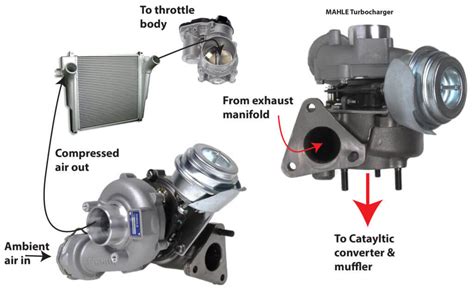Turbocharger Maintenance: Keep Your Car Running Smoothly
Turbochargers are amazing pieces of engineering, boosting your engine's power and performance. But like any high-performance component, they require regular maintenance to ensure longevity and optimal functionality. Neglecting your turbocharger can lead to costly repairs down the line, so understanding proper maintenance is crucial. This comprehensive guide will walk you through essential steps to keep your turbocharger running smoothly for years to come.
What is a Turbocharger and Why is Maintenance Important?
A turbocharger is essentially a turbine powered by exhaust gases. This turbine spins a compressor, forcing more air into the engine's combustion chamber. More air means more fuel can be burned, resulting in a significant increase in power and torque. Because turbochargers operate at extremely high speeds and temperatures, they are subjected to significant stress. Regular maintenance is vital to prevent premature wear and tear, avoiding potentially expensive repairs or even complete turbocharger failure.
Essential Turbocharger Maintenance Steps
Regular maintenance is key to maximizing the lifespan of your turbocharger. Here's a breakdown of essential steps:
1. Oil Changes: The Cornerstone of Turbocharger Health
This is arguably the most important aspect of turbocharger maintenance. Turbochargers rely on engine oil for lubrication and cooling. Using the correct grade of oil (as specified in your owner's manual) and changing it at the recommended intervals is critical. Neglecting oil changes can lead to oil starvation, causing the turbocharger bearings to overheat and fail. Dirty oil can also clog the oil passages within the turbo, further hindering its performance and lifespan.
2. Regular Visual Inspections
Periodically inspect the turbocharger and its surrounding areas for any signs of leaks, damage, or unusual noises. Look for oil leaks around the turbocharger housing, which could indicate a seal failure. Listen for any unusual whistling or whining sounds while the engine is running, potentially indicating a problem with the bearings or compressor wheel.
3. Avoid Aggressive Driving Habits
Avoid aggressive driving practices like sudden acceleration and deceleration, especially when the engine is cold. This puts immense strain on the turbocharger, forcing it to work harder than necessary. Allowing the engine to idle for a short period after driving helps cool down the turbocharger before switching off the engine. This prevents heat soak, which can damage the turbo's components.
4. Using High-Quality Oil and Filters
Always use the recommended engine oil and oil filter specified in your vehicle's owner's manual. High-quality oil offers superior lubrication and protection at high temperatures, reducing wear and tear on the turbocharger's bearings. Similarly, a high-quality oil filter effectively removes contaminants from the oil, ensuring clean lubrication.
5. Professional Inspections and Servicing
While many maintenance tasks can be handled by the car owner, periodic professional inspections by a qualified mechanic are recommended. They can perform more in-depth checks, identify potential problems early on, and address any issues before they escalate into major repairs.
Frequently Asked Questions (FAQs)
Here are some common questions regarding turbocharger maintenance:
How often should I change my engine oil if I have a turbocharger?
Follow the oil change intervals specified in your vehicle's owner's manual. In general, changing the oil more frequently than recommended for naturally aspirated engines is a good practice for turbocharged vehicles.
What are the signs of a failing turbocharger?
Signs include unusual noises (whistling, whining), loss of power, excessive smoke from the exhaust, oil leaks, and a noticeable drop in fuel efficiency.
Can I use synthetic oil in my turbocharged engine?
Synthetic oil is generally recommended for turbocharged engines due to its superior high-temperature performance and longer lifespan.
How long does a turbocharger typically last?
With proper maintenance, a turbocharger can last for 100,000 miles or more. However, this can vary depending on driving habits, oil quality, and overall vehicle maintenance.
Is it expensive to replace a turbocharger?
Turbocharger replacements can be costly, ranging from hundreds to thousands of dollars depending on the vehicle and the cost of labor. Regular maintenance is crucial to avoid this significant expense.
By following these simple maintenance steps, you can significantly extend the life of your turbocharger and ensure your vehicle's performance remains optimal. Remember, preventative maintenance is far more cost-effective than dealing with costly repairs later on.

